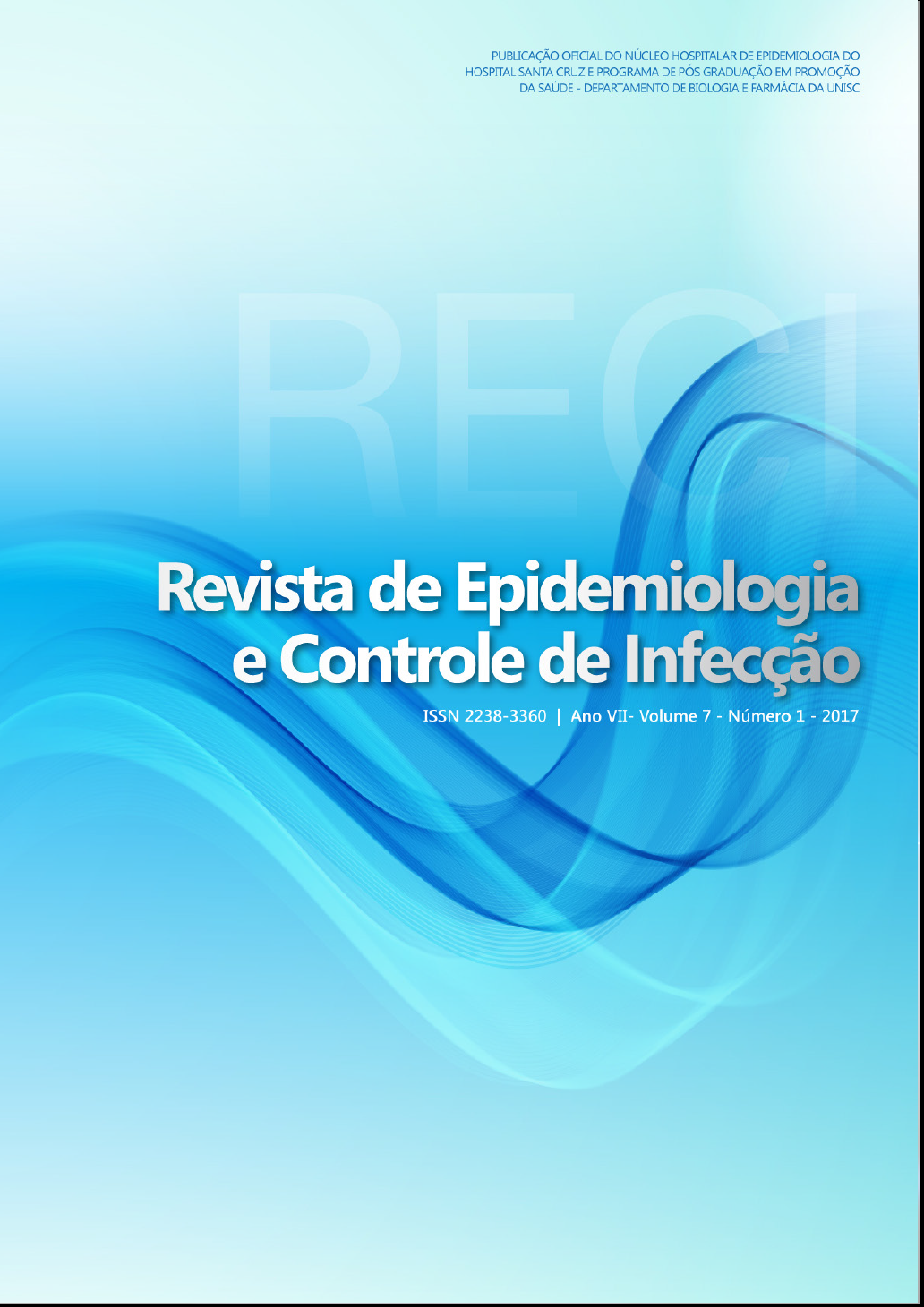Perfil Clínico e Epidemiológico de Pacientes com Suspeita de Aspergilose Pulmonar em Hospital do Estado Rio Grande do Sul, Brasil
DOI:
https://doi.org/10.17058/reci.v7i1.7154Resumo
Justificativa e objetivos: A aspergilose pulmonar consiste em uma grave infecção fúngica tendo como agente etiológico os fungos do gênero Aspergillus. A infecção acomete principalmente indivíduos imunocomprometidos, apresentando uma alta taxa de mortalidade entre os mesmosem decorrência do difícil diagnóstico e tratamento. Devido à dificuldade de obtenção de resultado positivo para a detecção de Aspergillus, em métodos tradicionais de cultura laboratorial, torna-se necessário avaliar técnicas alternativas para a detecção deste micro-organismo. Um dos avanços no diagnóstico da aspergilose é o teste da galactomanana, que detecta este polissacarídeo da membrana celular do fungo, o qual, durante a infecção, é secretado na corrente sanguínea do hospedeiro. Métodos: Este estudo consistiu em uma análise de 24 pacientes internados no período de 2012 a 2014 em um hospital terciário do estado do Rio Grande do Sul, Brasil. Para análise epidemiológica, os seguintes dados foram coletados sobre os pacientes com suspeita de aspergilose invasiva: idade, sexo, unidade de internação hospitalar, doença de base, dados clínicos e radiológicos, uso de antimicrobianos e resultados do teste da galactomanana. Resultados: Com base nos resultados analisados, 10 pacientes (41,6%) mostraram resultado positivo para o teste da galactomanana. Os pacientes apresentaram principalmente neutropenia prolongada consequente de doenças hematológicas. Além disso, a febre persistente a despeito de antibióticos de amplo espectro foi o principal sinal clínico associado à suspeita de aspergilose pulmonar invasiva. Conclusão: O presente trabalho corrobora com estudos anteriores e reforça a ideia da necessidade de uma detecção precoce da aspergilose. DESCRITORES: Aspergilose. Diagnóstico Diferencial. NeutropeniaDownloads
Downloads
Publicado
Como Citar
Edição
Seção
Licença
The author must state that the paper is original (has not been published previously), not infringing any copyright or other ownership right involving third parties. Once the paper is submitted, the Journal reserves the right to make normative changes, such as spelling and grammar, in order to maintain the language standard, but respecting the author’s style. The published papers become ownership of RECI, considering that all the opinions expressed by the authors are their responsibility. Because we are an open access journal, we allow free use of articles in educational and scientific applications provided the source is cited under the Creative Commons CC-BY license.


